- Contents
Mental health is essential to overall well-being, yet it is often shrouded in silence and stigma. The significance of addressing mental health issues cannot be emphasized enough, as they affect millions of people worldwide.
The WHO estimates that more than 280 million people suffer from depression, with over 284 million experiencing anxiety disorders. These conditions can severely impact an individual’s quality of life, leading to social isolation, reduced productivity, and, in extreme cases, suicidal ideation.
To understand the status of mental health, triggers, and effects of mental health among the youth in Africa, GeoPoll conducted an App survey in Nigeria and Kenya in May 2023, coinciding with Mental Health Awareness Month. The research addressed several pressing topics related to mental health, including:
- The major issues or triggers that contribute to mental health problems.
- Relationships and mental health.
- Positive Feelings Towards Life.
- Workplace Mental Health.
- Treatment/support for a mental health problem.
Mental Health Ratings
When asked to rate their mental health, half of the respondents said they were feeling excellent. However, a good segment – said they were somewhat good (25%) and for 21%, they thought their mental health was neither bad nor good. Three percent stated that their mental health was relatively poor.
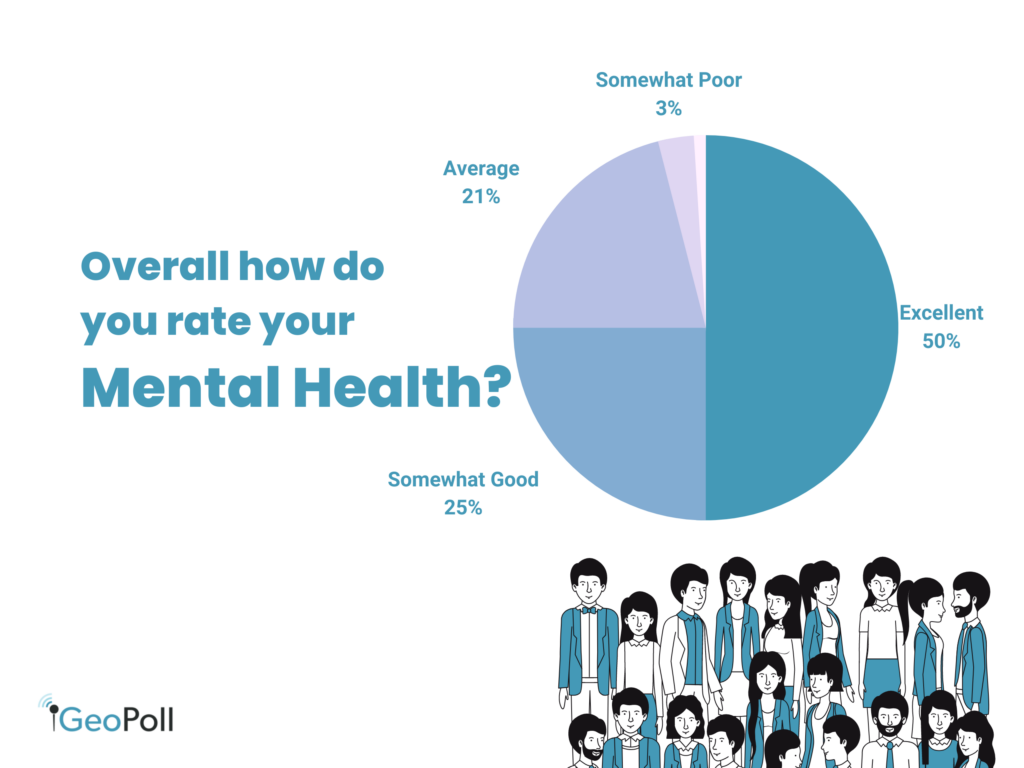
Globally, according to the World Health Organization (WHO), approximately one in four people will experience a mental health disorder at some point, a statistic which highlights the pervasive nature of mental health issues and the need for increased awareness and support.
Positive Feelings Towards Life
The GeoPoll Mental Health Survey revealed notable findings: 41% of the respondents expressed a genuine sense of positivity towards life, with 20% feeling positive always and another 20% admitted to occasionally experiencing negative feelings toward life. In addition, 14% of the respondent feel positive about half the time and 5% consistently experience a lack of positivity in their life. These emotions can be triggered by personal setbacks, stressors, or external factors beyond one’s control.
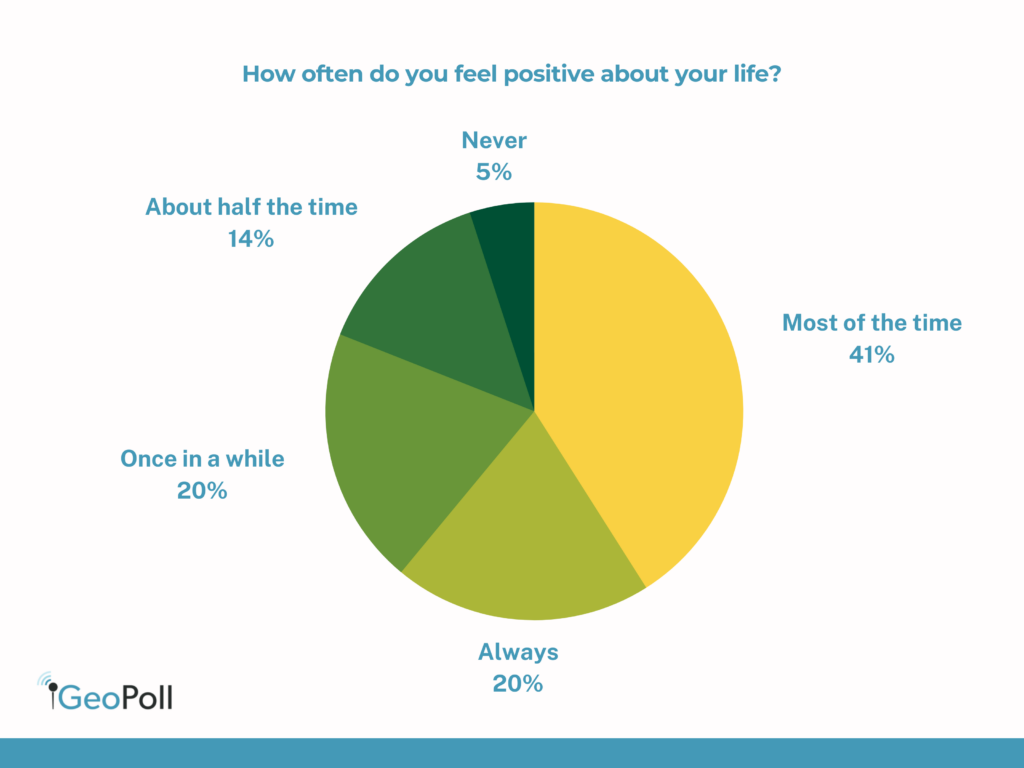
Workplace Mental Health
Mental health problems can significantly impact productivity and performance in the workplace. Our survey attributed that 63% of respondents reporting problems at work stemming from emotional challenges such as feelings of depression, sadness, or anxiety. This finding highlights the pervasive nature of mental health struggles and their undeniable influence on professional life.
Moreover, a study by the American Institute of Stress found that workplace stress and its effects on mental health are widespread, with 83% of U.S. workers reporting work-related stress.
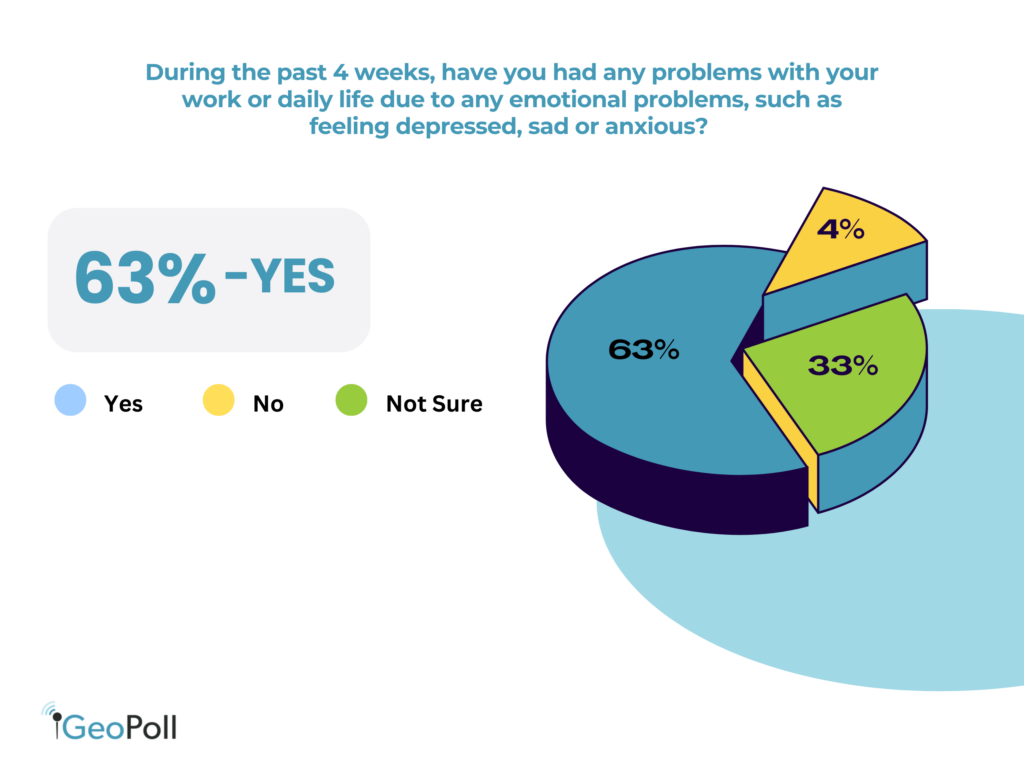
Relationships and mental health
In the GeoPoll Mental Health survey, we aimed to gain valuable insights into the intricate relationship between mental health and personal connections.
The results were enlightening, as we discovered that a significant proportion of respondents, precisely 28%, reported that their mental health had somewhat affected their relationships over the past two weeks.
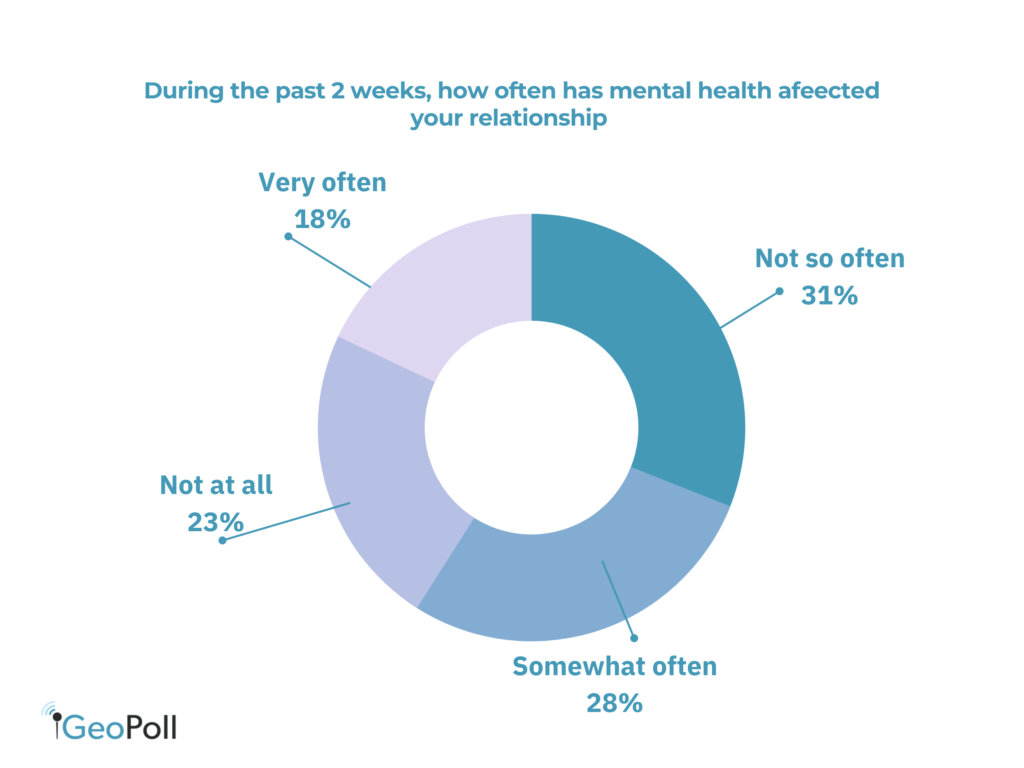
Access to Mental Health Services
Access to mental health services remains a significant challenge globally. Our findings showed that 78% of the respondents have ever sought support for their mental health problems, and 81% have not seen a therapist in the last two years; however, 67% have someone to share their mental health problems with.
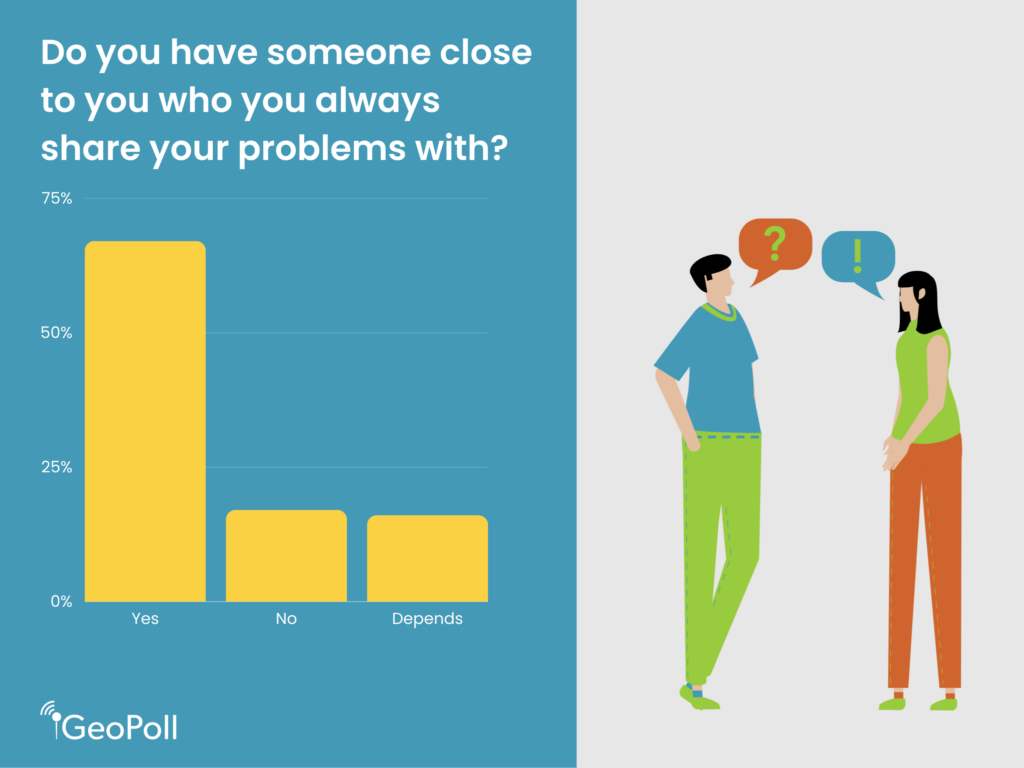
The WHO highlights that nearly 50% of countries worldwide have less than one mental health professional per 10,000 people. Additionally, significant disparities in access to care between low-income and high-income countries exacerbate the burden on vulnerable populations.
In Addition
The statistics on mental health presented in this blog post are a powerful reminder of the magnitude of our challenges. They underscore the urgent need for greater awareness, de–stigmatization, and improved access to mental health services. By recognizing the extent of the problem and working collectively to address it, we can strive for a world where mental health is prioritized, and support is readily available to all those who need it. Together, we can break the silence, shatter the stigma, and build a brighter future for mental health.
About This GeoPoll Survey
GeoPoll offers more mobile-based modes than any other research provider in Africa, Latin America, and Asia, allowing our clients to reach their target audience quickly. Our teams are experts in producing actionable insights from around the world and guide you throughout the research process.
We conducted this Dipstick Survey via the Mobile Application Mode by targeting a random sample of 2,244 GeoPoll App users in Kenya and Nigeria. The gender composition was 61% males and 39% females in Kenya and Nigeria. The ages groups leaned towards younger people – 15-24 (33%), 25-34 (52%) and 35+ (15%). To learn more about the methodology we used in conducting this survey, and learn about our capabilities in different parts of the world, please contact GeoPoll here.
